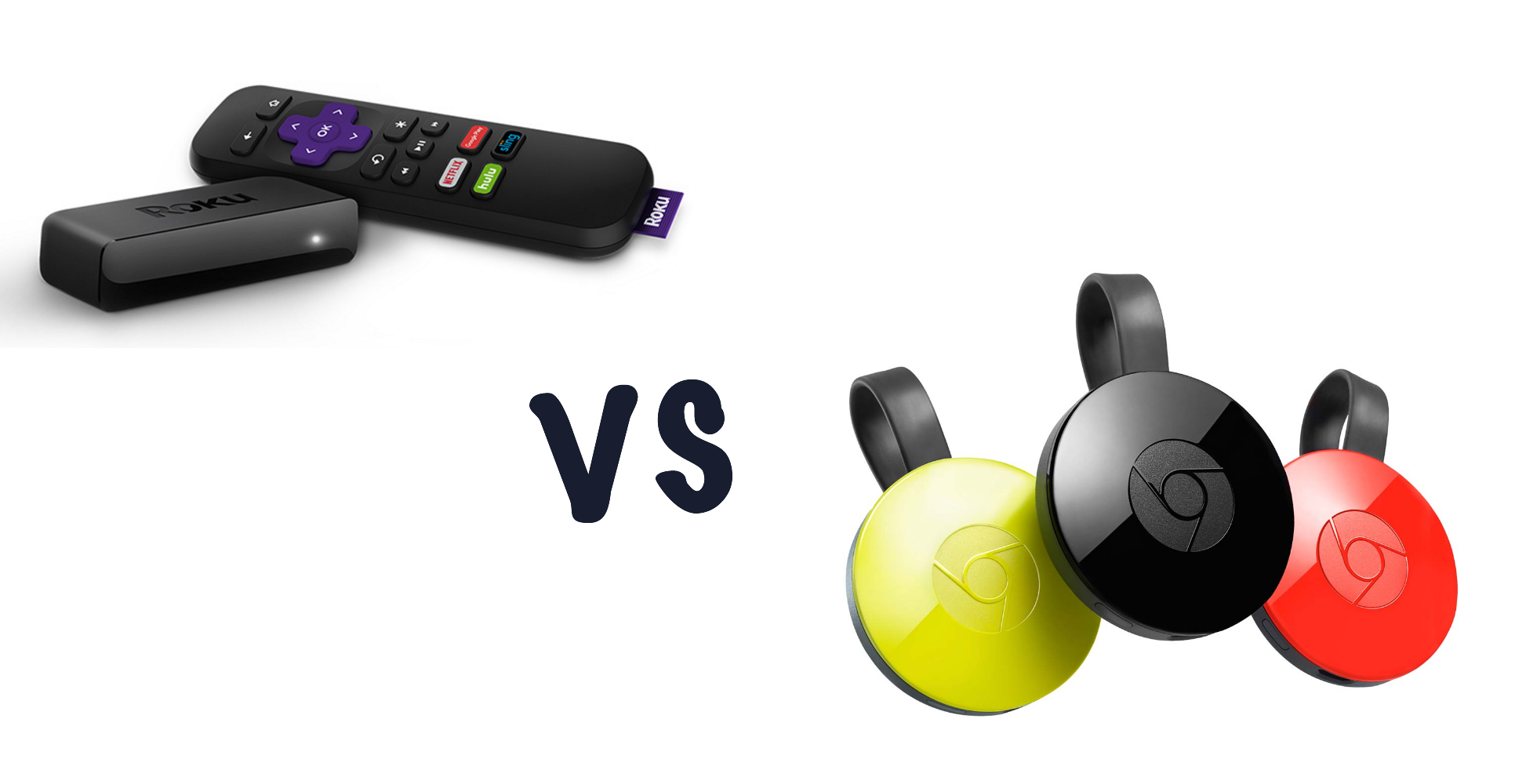There are a few choices out there if you are looking for a compact and affordable streaming device, but if you want something that's capable of streaming content from a few different providers (Netflix, Google Play, Hulu, etc), two of the current best choices are the Roku Express and Google Chromecast 2.
These are both great entry level streamers at prices that don't break the bank, with the Roku Express (part of the new line up from Roku) currently priced at $29.99 and the Google Chromecast 2 marginally more expensive at $35 (£30).
We have compared the two devices to help you see what the differences and similarities are to work out which might be the right one for you. Read on to find out.
Roku Express v Google Chromecast 2: Design
Design is probably one of the main differences between the Roku Express and Google Chromecast 2. The Chromecast 2 is a small device bundled in a round package measuring 51.9 x 51.9 x 13.49mm and weighing just 39.1g. The Roku Express on the other hand, is a little larger than the Chromecast measuring 35.6 x 83.8 x 17.8mm and it comes in the shape of a rectangular box weighing 36.9g.
Both the Google Chromecast 2 and Roku Express connect to your TV via HDMI and they are powered via Micro-USB. The main difference here is, in most cases, the Chromecast will sit hidden behind your TV (if you use a rear HDMI port), while the Express will need to sit somewhere in line of sight as it comes with a IR blaster-equipped remote control - more on this in a minute.
Roku has taken on the Henry Ford model of colouring ("let them have any colour they want, as long as it's black"), while Google offers the Chromecast 2 in three colour choices black, lemonade and coral. As it is going to be tucked out of view anyway though, it won't make much difference which colour you choose.
Roku Express v Google Chromecast 2: Hardware
Both the Google Chromecast 2 and the Roku Express pack some pretty smart technology into a small package. They are capable of streaming 1080p on a HD TV and the Roku Express includes Dolby Audio pass through, while the Chromecast 2 supports Dolby Digital+, if you have the appropriate A/V equipment.
When it comes to Wi-Fi connectivity, both streamers offer 802.11 b/g/n/ac with WEP and WPA/WPA2 security so providing you're getting good speeds, you should be fine. Netflix recommends 5mb/s for streaming HD content, so if you're able to get those speeds or better, you should have a clean streaming experience without any nasty buffering.
Roku Express v Google Chromecast 2: Control
Both the Chromecast and Express are controllable via their respective mobile apps. The Roku Mobile App offers voice control functionality for searching content, while the Chromecast supports a wide range of apps and has the ability to cast tabs from Google Chrome. Both devices have plenty of flexibility and give you access to a wide range of content straight from your mobile or tablet, or PC or laptop in the case of the Chromecast.
The Roku Express also includes a functional and easy-to-use remote, offering more choice when it comes to control as if you misplace the remote, you can still use your smart device. With the Chromecast, if your device runs out of battery, you'll be stuck unless you can find another device in the house or a plug close enough to the sofa to keep it charged.
The Roku remote does require line of sight in order to use it though, so if you'd rather keep the area around your television clean and tidy, the Chromecast might be the better option. The Google Chromecast also offers a functionality called 'guest mode', which allows nearby friends and family in your home to cast content to the TV via compatible apps, without the need to connect to your Wi-Fi network once they have input a pin.
Roku Express v Google Chromecast 2: Content
Both of these streaming devices offer access to a wide range of content. Google offers 'over 200,000 TV shows & films, 30 million songs, plus radio, sport, games and more', while Roku boasts over 350,000 with content from big providers including Netflix, Hulu Plus, Amazon Instant Video, HBO Go, Sling, Google Play Movies, FX Now, Lifetime, History and more.
It's worth noting that owning a Google Chromecast gives you access to a range of special Chromecast offers, which change on a regular basis and include things like free trials of NOW TV, Google Play Music and Disney Life.
The Google Chromecast also offers the ability to add a backdrop to your TV where you can choose from a range of content to display as a wallpaper on your TV when you're not using it to watch films or TV shows. This includes access to your own personal photos via the Google Photos app and via Facebook.
Roku Express v Google Chromecast 2: Which should you buy?
There are a few differences between the two streaming devices being compared here, with the main advantage being in favour of the Roku Express in terms of price and practicality. The inclusion of the remote control and on-screen interface, which is lacking on the Chromecast, makes the Roku Express more accessible and easier to use for those who may not be as well versed in the world of streaming technology.
Having said that, the Chromecast is neater and possibly more flexible in terms of the devices, apps and casting it supports. Ultimately, both devices are very good and offer the same, or similar, quality in terms of HD streaming, audio and available content.
Google is rumoured to launch a 4K capable version of its Chromecast in the form of the Google 4K Chromecast Ultra at its 4 October event however, so you might want to consider waiting. The Roku also doesn't have a UK availability date as yet.

